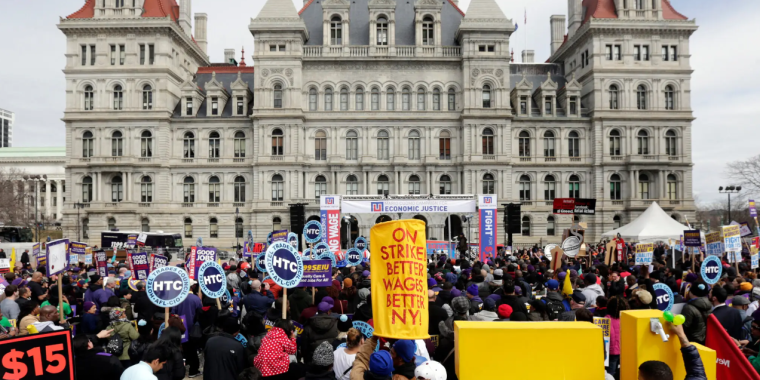New York City, Once a Minimum Wage Leader, Now Lags Behind

When New York City’s minimum wage first reached $15 nearly four years ago, New York was at the forefront of the movement to raise living standards for workers in the fast-food industry and other low-paying sectors. But in recent months, as the costs of rent, groceries and utilities have surged, the minimum wage in a growing list of cities, including Washington, Los Angeles and Denver, has vaulted past.
New York, unlike those cities, did not link its minimum wage to the rate of inflation. As the cost of living rises across the country, workers earning the lowest wages in the nation’s biggest city are seeing their incomes steadily reduced in real terms.
Since New York raised its minimum wage to $15 an hour for most workers at the end of 2018, the buying power of that wage has fallen by about 15 percent, according to James A. Parrott, director for economic and fiscal policy at the Center for New York City Affairs at the New School. Those workers have effectively been set back four years to the days when their minimum wage was $13 an hour, he said.
The power to set a minimum wage for all workers in New York City lies with the State Legislature. Attempts by Democrats in Albany to change state law to start adjusting the city’s minimum wage for inflation have so far failed to overcome opposition from business groups that object to the additional mandates.
Mr. Parrott said that if New York State does not act soon to raise the city’s minimum wage, it is likely to fall further behind other cities as the cost of living continues to rise. “The fact that rents have gone up so much faster than incomes everywhere is going to add to pressure for places that haven’t adopted a higher minimum wage to do that,” he said.
The trend of rising minimum wages is largely confined to states and cities where Democrats hold sway. But on Tuesday, voters in Nebraska approved a measure to gradually raise their state’s minimum wage from $9 to $15 by 2026. There are 20 states — including Pennsylvania, Georgia and Texas — that have not set a low wage higher than the federal minimum, which has been $7.25 an hour since 2009.